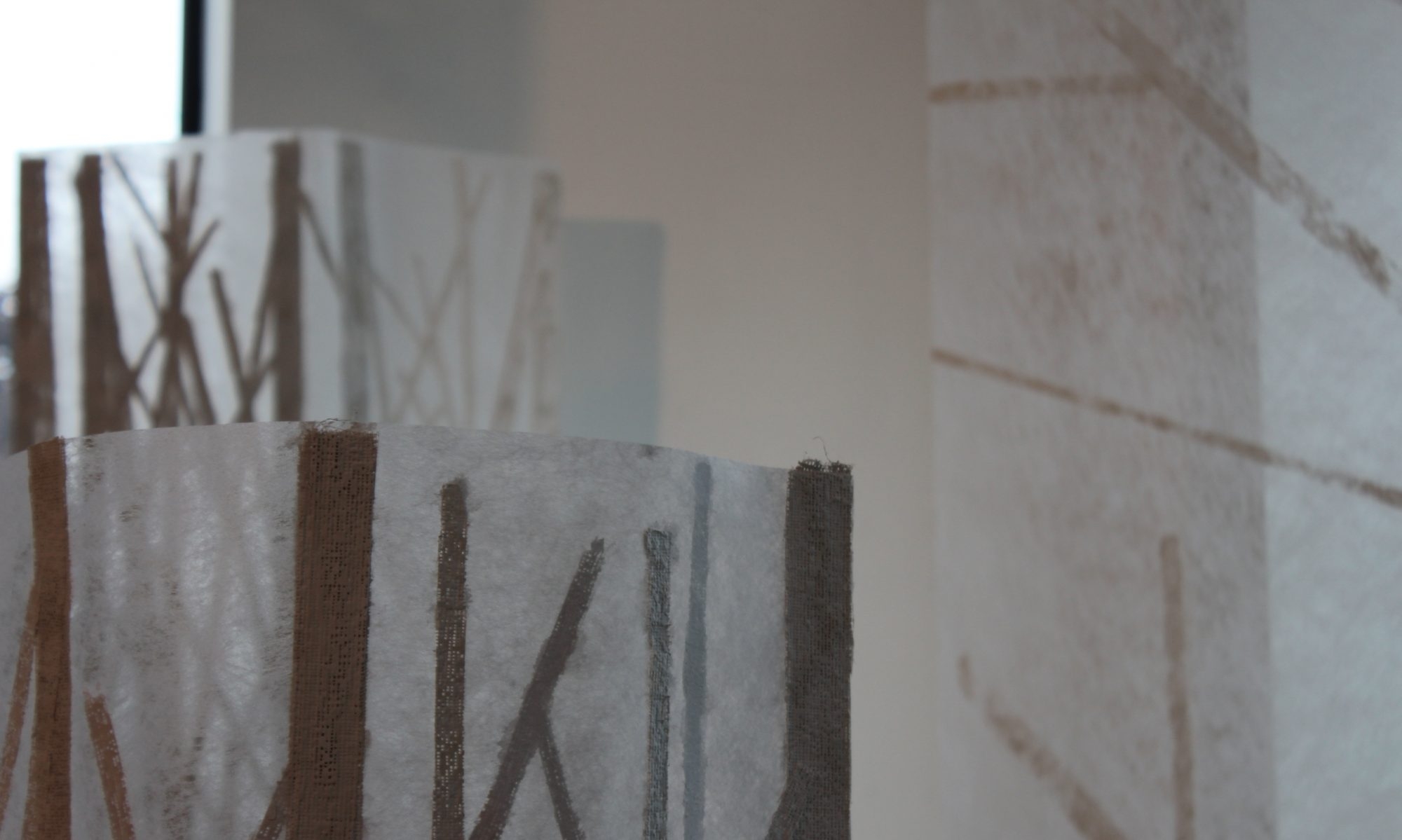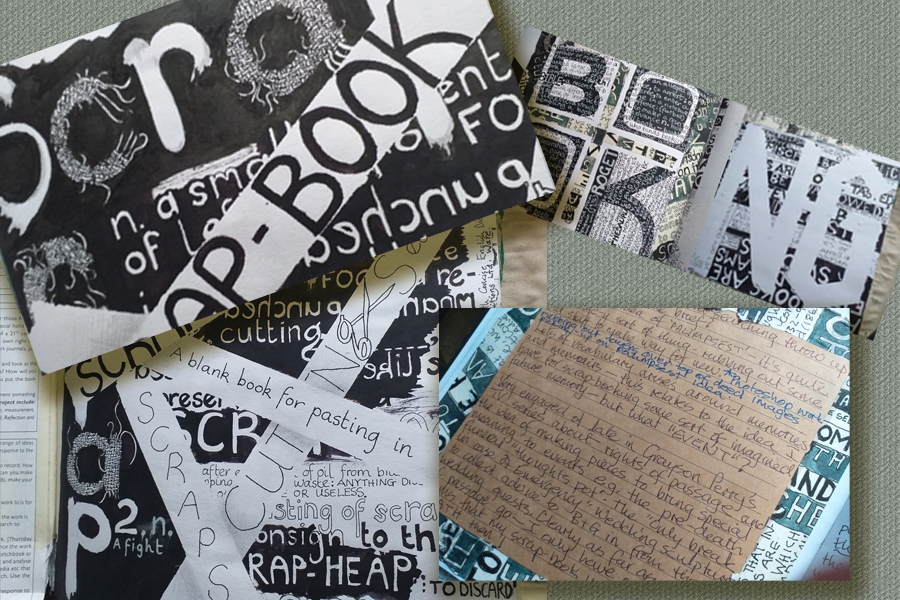‘Research the theme of scrapbook, art journal, memory album, mini book, and think about the event you want to record. …. You must show a wide range of primary research in a range of materials.’
Eldon, D. (1997) “The Journey Is The Destination”. London, Booth Clibborn Editions. A posthumous collection of Scrap/sketch books by Dan Eldon – war photographer, stoned to death in Somalia 1993 aged 22, edited by his mother. Dan’s mother writes about how some pages have dark papers pasted on top of previous entries which are scratched or torn away. This seems to connect with the palimpsest idea that has intrigued me from the vocabulary mind-mapping research I began with.
Technical Book vocabulary research. Studying bindings and signatures. The joy of Ephemera’s Vintage Garden Youtube channel!.

Wasserman, K. (2007). “The Book As Art”. New York, Princeton Architectural Press. Essays relating to the book as art – esp. from feminist/women’s perspective plus images and interpretation referencing the collection of books in the National Collection of Women in the arts.
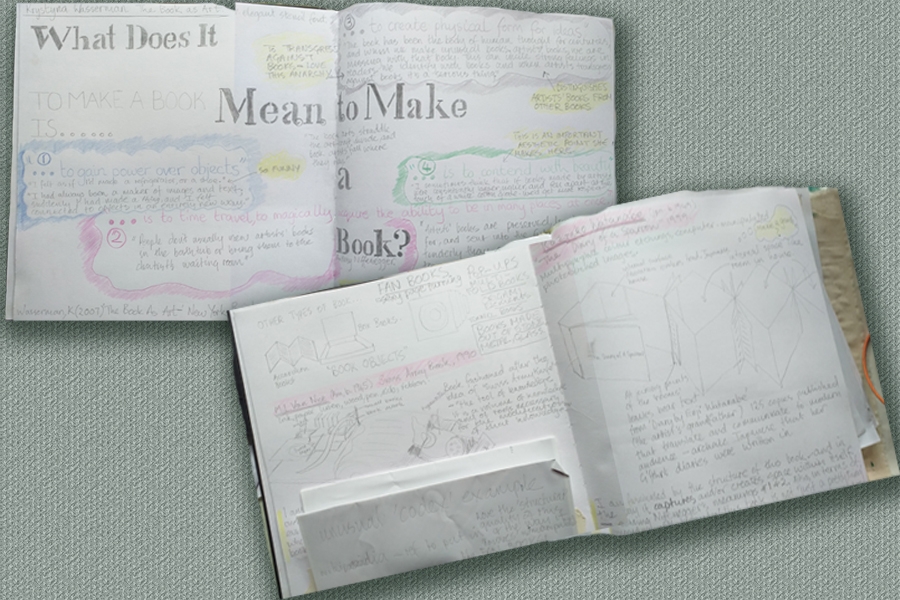
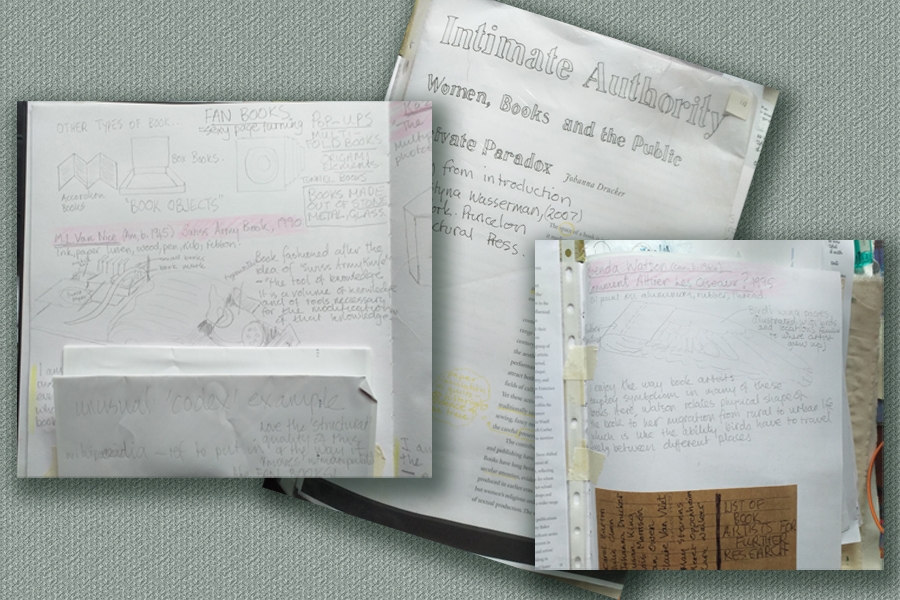

Watson. Comment Attirer Les Oiseaux 
Chen. Bon Bon Mots 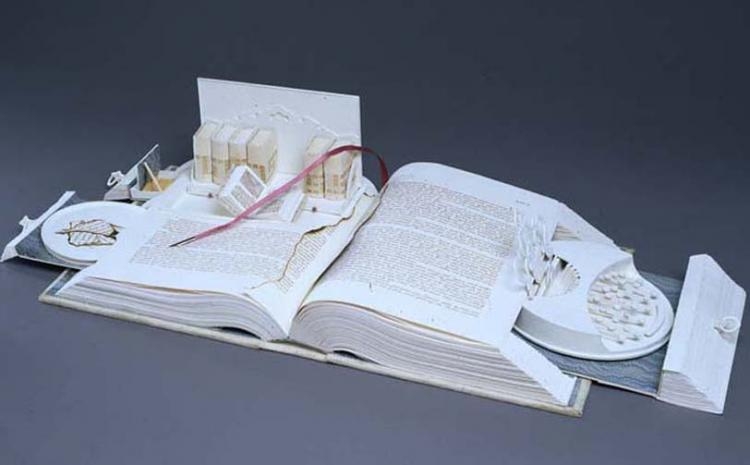
Nice. Swiss Army Book 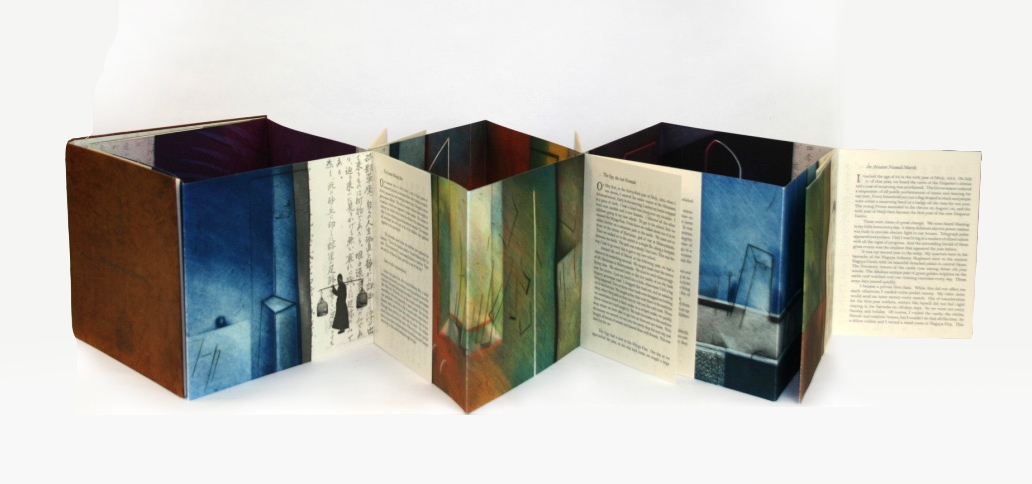
Watanabe. The Diary of A sparrow.
Also, following on from the textile workshops, and knowing that I want to develop pieces begun here further, I have been thinking about my late Grandma and her experience as a WI sewing instructor…… this has led to reading about the history of Denman College.
https://www.denman.org.uk/
Meech, S. (2009) Connecting Art To Stitch. London, Anova Books Company Ltd. Analyses and explores the relationship between fine art methodologies and textile techniques.
